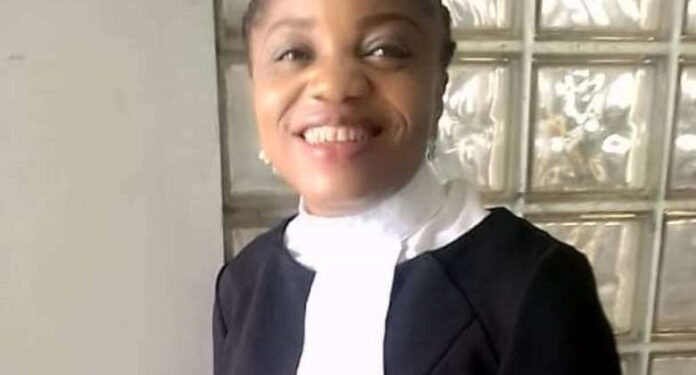By Barr. Ijeoma Fynecontry
The month of March usually ushers in a lot of activities to highlight the needs and demands of people with disabilities. The 21st of March of every year is celebrated as World Down Syndrome Day (WDSD). Down syndrome is a chromosomal disorder which results to, in some case both physical and mostly intellectual disability for persons born with it.
The central demand in recent times for stakeholders and actors in disability advocacy particularly the Intellectual disability sector is INCLUSION. The theme for this year celebration of the WDSD is “INCLUSION MEANS….” Highlighting the areas and aspect of inclusion needed to better the lives of this special category of persons who by all rights and standard are bona fide members of the citizenry deserving of protection, provision and promotion like any other citizen.
The significance and desirability of making deliberate efforts toward recognizing and fulfilling this need for persons with intellectual disability cannot be over emphasized.
For such persons, ordinary every day rights/entitlements like access to good and effective healthcare service, fit for purpose education and other learning support, economic independence, social/environmental interaction, religious and political participation does not come easy to them.
However, the question is why is it so? Were these group of persons not envisaged under the law as citizens legally entitled? Or is it that the government and by extension the society at large just does not care. Is it a right, the enforceability of which can be demanded?
Legally, it seems that the basic legal instruments to achieve substantial part of the inclusiveness expectations are already in place in principle but the sad fact is that implementation is far from being a reality due to some inbuilt legal limitations or just lack of the concern/care. Two major Laws particularly significant is the 1999 Constitution of the Federal Republic of Nigeria (As amended) and Discrimination Against Persons Living with Disabilities (Prohibition) Act, 2019.
Chapter 2 of the 1999 Constitution (as amended) generally deals with “FUNDAMENTAL OBJECTIVES AND DIRECTIVES PRINCIPLES OF STATE POLICY”. These are mainly the responsibilities and objectives of government in relation to the citizens. Section 13 of the Constitution declared it a duty and responsibility of all organs of government and authorities “to conform to, observe and apply the provisions of this chapter of this Constitution”. Interestingly, the Constitution in Sections 16, 17 and 18 captures the Economic, Social and educational objectives of the Nigerian nation respectively. Regarding the economic right or inclusion of all persons including persons with disability, Section 16 (2) (d) provides that – “The State shall direct its policy towards ensuring – that suitable and adequate shelter, suitable and adequate food, reasonable national minimum living wage, old age care and pensions, and unemployment, sick benefit and welfare of the disabled are provided for all citizens”.
Further altruistic ideals are also captured at Section 17 (2) (g) which provides that – “provision is made for public assistance in deserving cases or other conditions of need..” The commendable thing in the whole of the provisions in the Chapter is that all the provided rights is to be for the benefit of ‘ALL PERSONS’, those with disability of any form inclusive.
The Discrimination Against Persons with Disabilities (Prohibition) Act, 2018 on the other hand is specifically enacted to is to achieve full integration of persons with disabilities and champion the causes for their socio-economic rights through a specially established National Commission for persons with disabilities which should be responsible for, and oversee the adequate representation of and projection of the needs of persons with Disabilities. The provisions even with some obvious shortfalls are a huge and commendable leap towards attending to the needs of, and achieving the desired inclusion for persons with any form of disability.
From the above, it is clear that the legal framework to guide the operational achievement of inclusion for persons with intellectual disability be it social, economic, cultural or educational exists. The real work is in the practical application in the various straits of life. Achieving a totally inclusive society therefore should not be too difficult. Disability is not total limitation. The unique ability in disability can be harnessed for great productivity. Persons with disability, intellectual, physical or both deserve a productive, enhanced and beautiful living condition. Persons with disability are persons desiring of every other goodness of life like those without disability.
Ijeome Fynecontry is a Lagos based legal practitioner and the Legal Resource person for Down Syndrome Foundation Nigeria.


